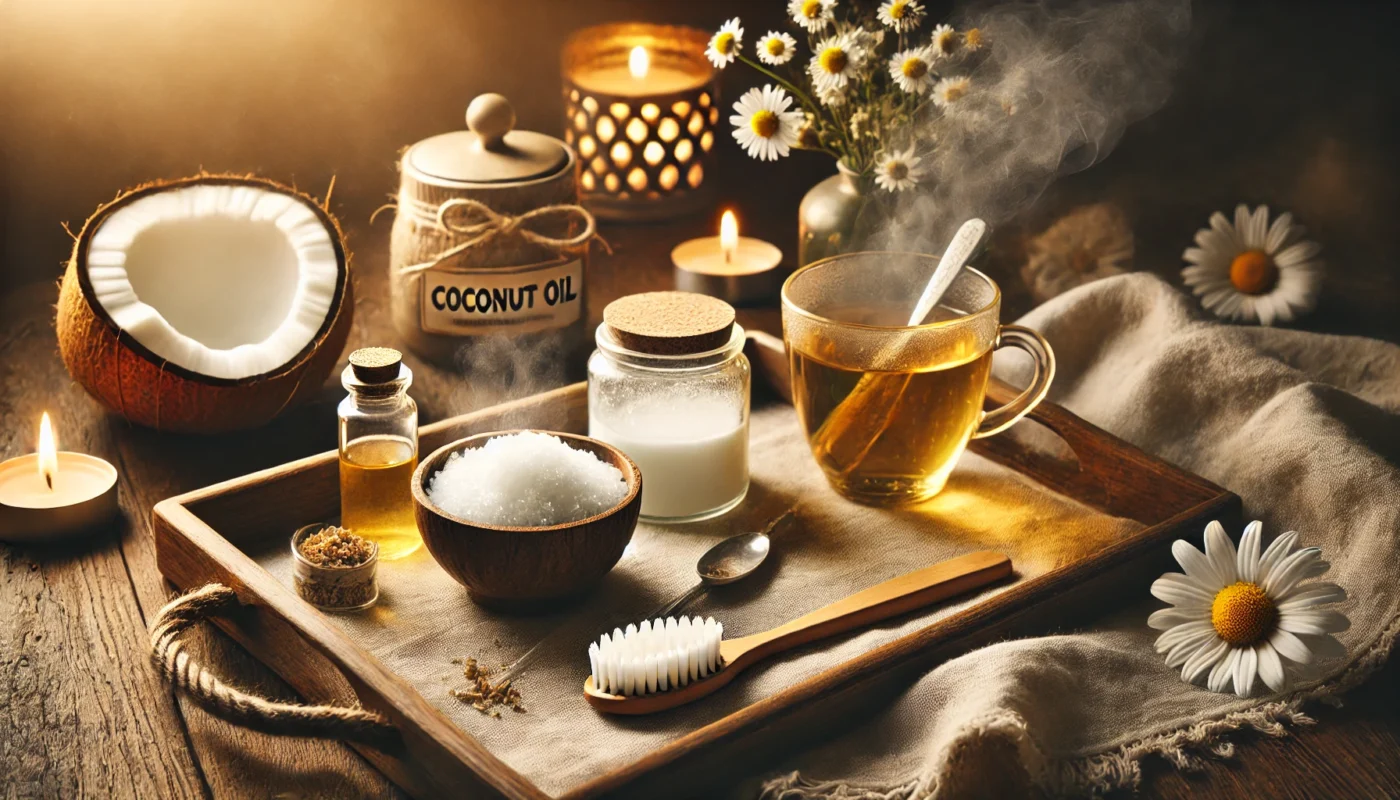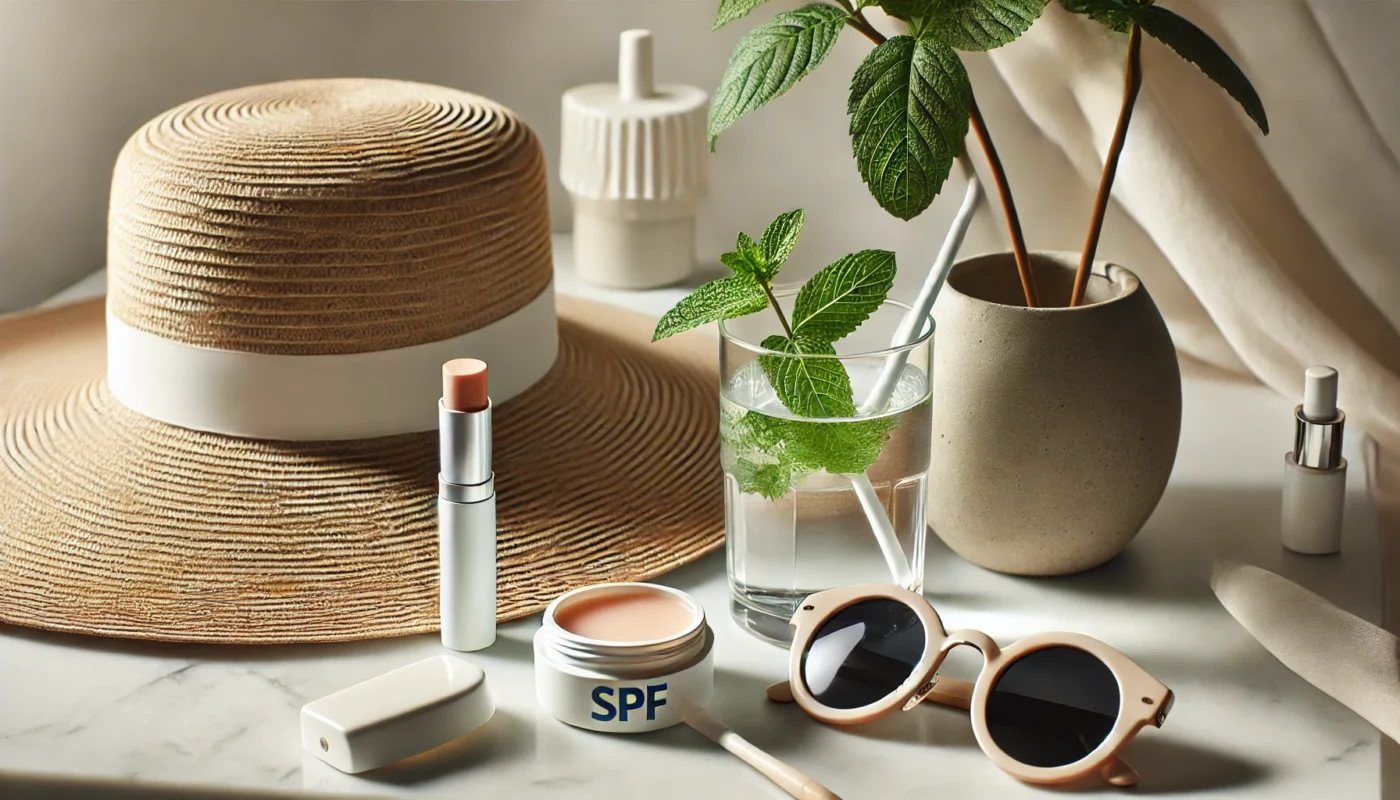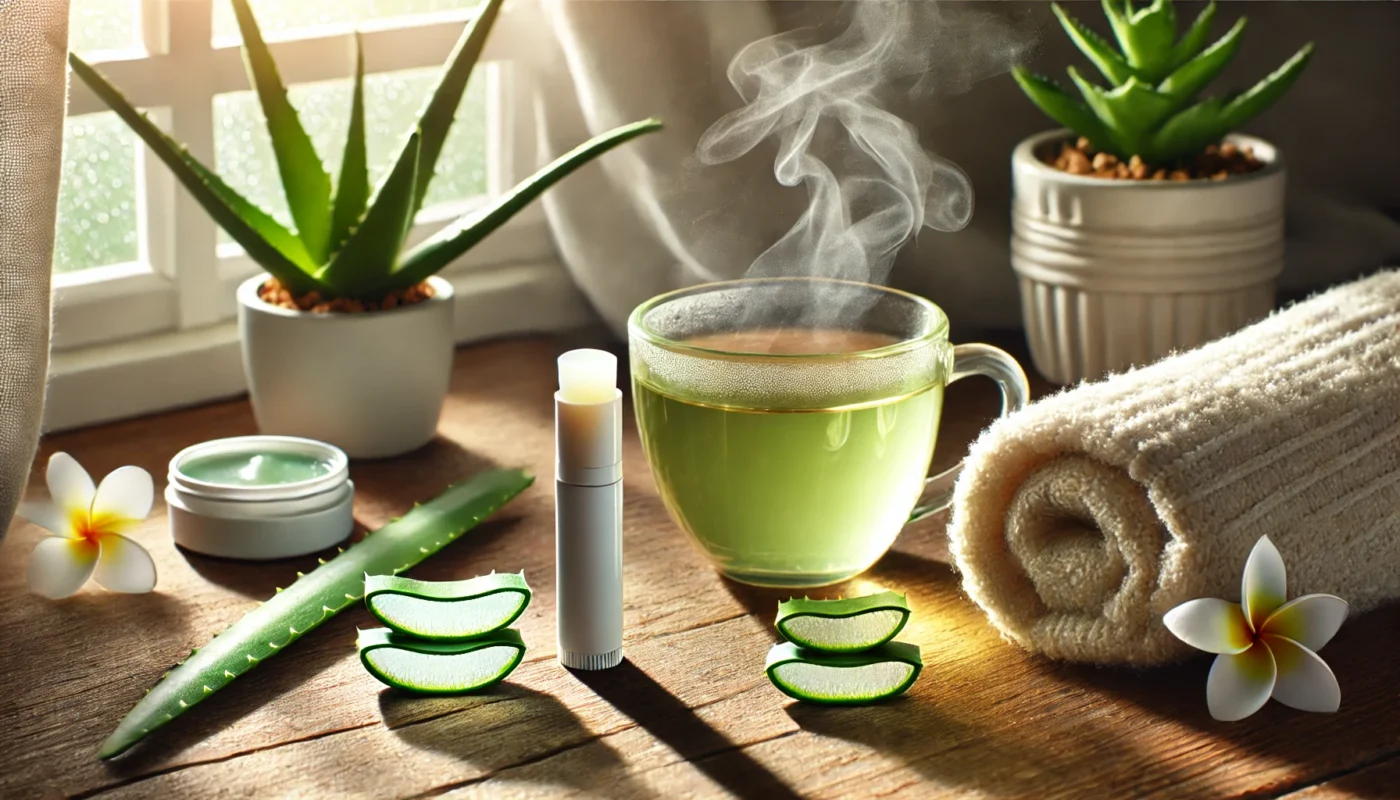In this article, we will delve into the causes of lip blisters, explore various prevention techniques, and discuss holistic and alternative remedies to keep your lips blister-free.
You may also like: Essential Tips for Sun Protection Daily
Understanding the Causes of Lip Blisters
Lip blisters, also known as sun blisters, are typically caused by prolonged exposure to ultraviolet (UV) rays. The skin on your lips is thinner and more sensitive than the rest of your body, making it more susceptible to sun damage. This exposure can lead to painful blisters, as well as long-term damage such as premature aging and an increased risk of skin cancer.
Sun Exposure and UV Damage
The sun emits ultraviolet rays that can penetrate the skin, damaging the DNA in cells. This damage is more pronounced on the lips due to their thin skin and lack of melanin. Unlike other parts of the body, the lips do not tan; instead, they burn, leading to blisters and peeling.
The severity of UV damage on lips can vary based on geographic location, altitude, and the time of year. Those living closer to the equator or at higher elevations, where UV exposure is more intense, may experience more frequent lip blisters.
Dehydration and Lip Sensitivity
Dehydration is another factor that can exacerbate the risk of lip blisters. When the body is dehydrated, the lips can become dry and chapped, making them more susceptible to sunburn and blistering. Additionally, dry lips lack the protective barrier needed to fend off harsh environmental elements.
Environmental factors such as wind and cold weather can also strip moisture from the lips, further increasing their sensitivity to UV rays and the likelihood of blister formation.
Nutritional Deficiencies and Medication Effects
Nutritional deficiencies, particularly in vitamins like B2 and B3, can lead to weakened skin integrity and increased vulnerability to sun damage. A diet lacking essential nutrients can compromise the skin’s ability to repair itself after UV exposure, leading to more severe blisters.
Certain medications, such as antibiotics and diuretics, may increase the skin’s sensitivity to sunlight, making lip blisters more likely. Patients should consult with healthcare providers to understand potential side effects and explore alternative medications if necessary.
Prevention Strategies
Embrace Sun Protection
The most effective way to prevent lip blisters is to protect your lips from the sun. Applying a lip balm with a high SPF is essential, especially during peak sun exposure hours between 10 AM and 4 PM. Look for products that offer broad-spectrum protection against both UVA and UVB rays. Reapply every two hours, or more frequently if you’re swimming or sweating.
In addition to lip balm, wearing a wide-brimmed hat can provide extra shade and protection for your face and lips, further reducing the risk of sun-induced blisters. Consider using umbrellas or seeking shade during the sun’s peak hours to minimize direct exposure.
Sunglasses with UV protection can also help protect the delicate skin around your lips and eyes, reducing overall sun damage. Ensure your sunglasses cover a wide area and have a high UV protection rating for maximum benefit.

Stay Hydrated and Nourished
Hydration plays a crucial role in maintaining healthy skin, including your lips. Drinking plenty of water throughout the day helps keep your lips moisturized and less prone to cracking and blistering. Moreover, a diet rich in vitamins and minerals, particularly vitamins C and E, can enhance your skin’s resilience against sun damage.
Incorporate foods such as leafy greens, nuts, seeds, and citrus fruits into your diet to provide your body with the necessary nutrients for optimal skin health. Foods rich in omega-3 fatty acids, like salmon and flaxseeds, can also support skin hydration and elasticity.
Using a humidifier at home can help maintain moisture in the air, preventing your skin and lips from drying out, especially in winter months. Additionally, avoid licking your lips, as this can lead to more dryness and irritation.
Be Mindful of Medications and Products
Certain medications, like antibiotics and diuretics, can increase your skin’s sensitivity to sunlight, making lip blisters more likely. If you’re taking medication, consult with your healthcare provider about any potential side effects and necessary precautions. Similarly, be cautious with the skincare products you use on your lips, avoiding those with irritants such as alcohol and fragrances.
Opt for lip care products that contain natural, soothing ingredients such as shea butter, beeswax, or chamomile. These ingredients can provide a protective barrier while keeping your lips moisturized and less susceptible to blisters.
If you notice any adverse reactions to lip care products, discontinue use immediately and consult a dermatologist for suitable alternatives. Patch testing new products on a small area of skin can help prevent widespread irritation.
Holistic and Alternative Remedies
Aloe Vera: Nature’s Soothing Gel
Aloe vera is renowned for its soothing and healing properties. Applying fresh aloe vera gel to your lips can provide relief from the pain and inflammation associated with blisters. It acts as a natural moisturizer, promoting healing while preventing further irritation.
Simply break off a leaf of an aloe vera plant, extract the gel, and apply it to the affected area several times a day. Ensure that the gel is pure and free from added chemicals for optimal results. Aloe vera can also be stored in the refrigerator for a cooling effect upon application.
For those who prefer ready-made products, ensure that any aloe vera gel purchased is at least 99% pure and free from artificial colors or preservatives. The natural properties of aloe vera can benefit not only the lips but also the entire face and body.

Coconut Oil: A Moisturizing Marvel
Coconut oil is a versatile and effective home remedy for sun-damaged lips. Its natural moisturizing properties help keep the lips hydrated, preventing the formation of blisters. Moreover, its anti-inflammatory and antimicrobial properties can aid in the healing process.
Apply a small amount of organic coconut oil to your lips before going to bed and throughout the day as needed. This simple routine can significantly improve the condition of your lips over time. For added benefit, consider mixing coconut oil with a few drops of essential oils like lavender or tea tree, known for their soothing effects.
Coconut oil can also be used as a gentle makeup remover, ensuring that no harsh chemicals contribute to lip irritation. Its versatile nature makes it a staple in holistic skincare routines.
Green Tea: Antioxidant Powerhouse
Green tea is rich in antioxidants that can help combat the effects of sun damage on the skin. Using a cooled green tea bag as a compress on your lips can soothe inflammation and promote healing. The tannins in the tea also provide astringent properties that can reduce swelling.
Steep a green tea bag in hot water, allow it to cool, and then place it on your lips for 10-15 minutes. Repeat this process a few times daily for best results. The catechins in green tea can also promote overall skin health when consumed regularly as a beverage.
Incorporating green tea into your diet provides a dual benefit for lip health, offering both topical and internal antioxidant support. This natural remedy is easy to incorporate into your daily routine, providing a soothing experience for your lips and senses.
Seeking Medical Advice
While home remedies and preventive measures are effective for most cases of lip blisters, it’s important to seek medical advice if you experience severe or persistent symptoms. A healthcare professional can provide a comprehensive evaluation and recommend appropriate treatments, including prescription medications if necessary.
When to Consult a Doctor
If lip blisters are accompanied by severe pain, fever, or spreading to other areas of the face, it’s essential to seek medical attention. These symptoms could indicate an underlying infection or condition that requires professional intervention.
Chronic or recurring lip blisters may signify an allergic reaction or a need for dietary adjustments. A dermatologist or healthcare provider can conduct allergy tests or recommend supplements to address potential deficiencies.
Treatment Options
In some cases, prescription antiviral medications may be necessary, especially if blisters are caused by the herpes simplex virus. Topical creams or ointments can also be prescribed to reduce inflammation and pain.
Photodynamic therapy is another option for severe cases, where light-sensitive medication is applied to the skin and activated with a specific light source to target damaged areas. This treatment should only be considered under the guidance of a qualified healthcare professional.
Professional Skincare Advice
A dermatologist can offer personalized skincare advice, recommending specific products or treatments tailored to your skin type and condition. Regular check-ups can help monitor skin health and prevent future occurrences of lip blisters.
Professional advice can complement your home care routine, ensuring you achieve the best possible results for healthy, blister-free lips.

Conclusion
Preventing and treating lip blisters requires a combination of sun protection, proper hydration, and mindful use of skincare products. By adopting these strategies and incorporating holistic remedies into your routine, you can maintain healthy, blister-free lips. Remember, your lips are just as susceptible to sun damage as any other part of your body, so they deserve the same level of care and attention.
Stay proactive about your lip health, and enjoy the confidence that comes with a radiant, healthy smile. Prioritizing lip care not only enhances your appearance but also contributes to overall well-being and comfort in daily activities.
Further Reading:
What’s the Difference Between a Cold Sore and a Fever Blister?
lip blisters, sun damage, sunburned lips, lip care, sun protection, aloe vera, coconut oil, home remedies, skincare, UV protection, lip hydration, natural remedies, skincare tips, blister treatment, holistic remedies.
Important Note: The information contained in this article is for general informational purposes only, and should not be construed as health or medical advice, nor is it intended to diagnose, prevent, treat, or cure any disease or health condition. Before embarking on any diet, fitness regimen, or program of nutritional supplementation, it is advisable to consult your healthcare professional in order to determine its safety and probable efficacy in terms of your individual state of health.
Regarding Nutritional Supplements Or Other Non-Prescription Health Products: If any nutritional supplements or other non-prescription health products are mentioned in the foregoing article, any claims or statements made about them have not been evaluated by the U.S. Food and Drug Administration, and such nutritional supplements or other health products are not intended to diagnose, treat, cure, or prevent any disease.

